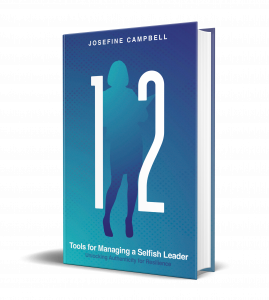
Share This Post
Whether you work physically, virtually or hybrid, personal energy determines how well you thrive, perform, collaborate, lead and how efficient you are. In my coaching practice, I find that some people are better at keeping a responsible personal energy level than others. It is often quite unsaid, but there is almost an expectation that if you are to be found in a higher management level, you have to master how to keep a high personal energy level (we can discuss the fairness, but it is the reality many face). Hence, in this article you get a brief introduction to what it means to work with your personal energy in your work life and why it is extra important when working virtually or hybrid.
Would you prefer reading this article in danish? Then follow this link.
Personal energy in the hybrid or remote workplace
It can be difficult to keep the energy up behind the screen. A virtual or hybrid working life requires a higher degree of personal commitment to your own well-being. Even if you have a manager who does an effort to know how the employees feel – it’s just harder to sense through a screen or when someone from the team is home while others are in the office.
An article from Harvard Business Review states that we can be hybrid competent. Hence that, they point that in addition, to a shift in power which the manager should be aware of equalizing, some employees are more hybrid competent than others and therefore better can manage working from home. When you are hybrid competent, you are (among other things):
- Proactive – which meaning gets access to information
- Good at building and maintaining trust and relationships and therefore also is better at it virtually.
To the above I would add: Being able to manage or nurture one’s own energy level. In my coaching practice, I hear about how much more it takes for managers sense their employees’ well-being when the collaboration is from distance. Although the manager wants to energize his employees and ensure high well-being, it can be very difficult for a manager to reach all his employees behind their screens.
20% of your energy is a lot
20% can be a lot, and 20% can be less. In this context 20% is a lot. Did you know that your brain spends at least 20% of your energy even when you are asleep? The brain is, after the liver, the most energy-consuming organ. This is surprising, because, according to researchers, the brain takes up only 2-3% of our body mass.
Hence, being able to work with your own personal energy, as recommended here, requires you seeing the brain and body as a single system. Because, what we do to our body affects the energy level throughout our system and thus also in our energy-consuming brain.In my book: Are you ready or hijacked?, there is an entire chapter on personal energy.
Deloitte's energy barometer

At Deloitte in Copenhagen a division of 50 people work consciously with their personal energy. Their work with personal energy includes:
- Being aware of your own energy level
- Being able to increase your energy
- Being aware of how to affect the energy of others
- Not to be influenced by negative energy of others
- Taking responsibility for the energy in meetings and in other interactions with customers, colleagues and other people by not being negative, but contributing positively.
The result, of their work with personal energy for the last three years, has been:
- Increasing employee satisfaction
- Increasing customer satisfaction
- Low level of employee turnover.
Results that certainly affect the bottom line.
Energy in collaborations
Energy has an effect in collaborations in the workplace – whether it is hybrid, virtual or physical. Energy is a thing more difficult to grasp but from which we can observe the effect. Energy exists in the individual, but also between people. There doesn’t have to be fireworks or strong chemistry until you can sense the energy between people. It can also be sensed in an equal exchange or in a negative relationship.
A group or a team can also have a common energy level when together, or they may be in a common mental state of being fit or mellow, narrow or fragile. At Copenhagen Business School, where I have been giving lectures, there is a lot of group work. The students choose their own groups. Of course, there are students who speculate being with someone who is skilled and who, they think, has the same work ethics as themselves. But what is often decisive is chemistry. They want to be in a group with someone they like to be around. Someone where there’s good energy. Preparing for an exam is energy-intensive in many ways. Not only do they need to devote mental energy to do a decent academic work. They also need to devote emotional energy going to the exam, because of the fact that many get nervous.
In workplaces, there is less freedom of choice of whom you want to collaborate with e.g., when you are a part of a management group. You can’t change others but, you can change your own experience of the collaboration and thereby affect your own energy level. You can also influence the common energy level with your behaviour. Because it takes a lot of energy to be negative, while it gives energy to laugh. In practice, it is not always easy. Of course, one person can take more energy than another
What can we do to bring better and more personal energy into our work life?
There is an individual aspect and a collective aspect. You can always do something in terms of your own personal energy level, and that’s where the journey starts. For inspiration, here’s a list of some of the topics we deal with in team programs:
- Oxygen and C02
- Dark green vegetables
- Mastering your nerve systems
- Focus as a mental state
- Flow as a mental state
- The rhythm you work in
- Good work-relations
- The meaningful work
- Psychological safety
- Less experienced distance despite the physical separation
- How to be less impressionable by negative energy and mood of others.
In the “old” world this was important, but in the hybrid or virtual working life it has become even more important.
If you would like to be noticed when articles like this are published or get invitations to management events, please sign up to the mailing list. Also, you can read more about energy in my book. Further, it is an option to get coaching or a team development program into your company. It won’t cost a penny to talk about it.
If you would like to be updated with new articles and videos, sign up for our mailing list. Your mail is not shared with anyone and there are advantages to being on the list e.g., getting a mini course in your personal leadership.
Would you like the newest knowledge and inspiration sent directly to you?
Then subscribe to our monthly newsletter
Bibliography
- Mark Mortensen and Martine Haas (2021), Making the Hybrid Workplace Fair publishes on HBR.org.
- Lindeløv, Jonas Kristoffer (2012): Bruger vi kun 10 procent af hjernen? Published on videnskab.dk.
- Campbell, Josefine (2020), Are you ready or hijacked? Published by Zara with the original Danish title: Er du klar eller kapret?.












